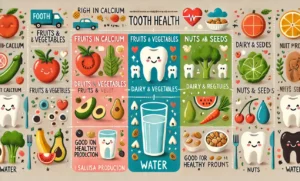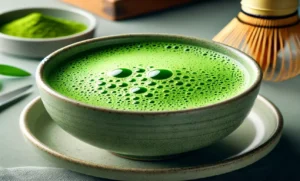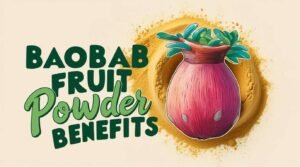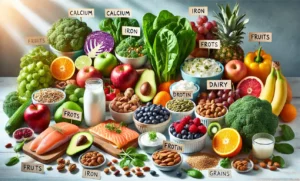Organic Moringa Leaf Powder: Nature’s Nutritional Powerhouse
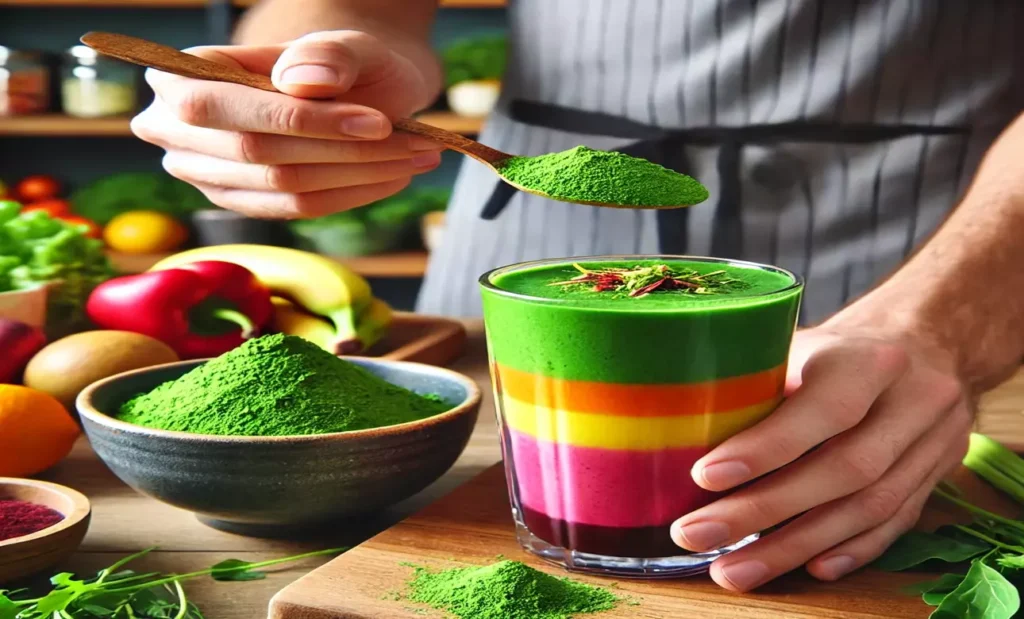
Have you ever heard of a tree so packed with nutrients that it is nicknamed “The Miracle Tree”? Well, let me introduce you to Moringa oleifera, the superstar of the plant world. This humble tree, native to parts of Africa and Asia, has been turning heads in the health and wellness community. And for good reason. When dried and powdered, its leaves become a nutritional powerhouse that’s taking the world by storm.
In this article, we will explore the world of organic Moringa leaf powder. We will explore what it is, why it’s so good for you, and how you can make it a part of your daily routine. So buckle up and get ready for a green adventure that might change your life.
- What is Organic Moringa Leaf Powder?
- Nutritional Profile of Moringa Leaf Powder
- Health Benefits of Organic Moringa Leaf Powder
- How to Use Organic Moringa Leaf Powder
- Potential Side Effects and Precautions
- Choosing High-Quality Organic Moringa Leaf Powder
- Sustainability and Environmental Impact
- Moringa vs. Other Superfoods: A Comparison
- Frequently Asked Questions (FAQs)
- Conclusion: Embracing the Power of Moringa
What is Organic Moringa Leaf Powder?
The Moringa Oleifera Tree
Picture a tree that looks straight out of a Dr. Seuss book – long, slender pods dangling from branches like green drumsticks. That’s the Moringa oleifera tree for you. This fast-growing tree is a tough cookie, thriving in harsh conditions where other plants would throw in the towel.
But it’s not just its resilience that’s impressive. Every part of this tree – from its roots to its flowers – is edible and packed with nutrients. It’s like Mother Nature’s own multivitamin.
From Leaf to Powder: The Production Process
Now, talk about how those green leaves become the powder you might find in your local health food store. It’s a simple process that requires care to preserve all those precious nutrients.
To begin, the leaves are collected from organically cultivated Moringa trees, ensuring they are free from harmful pesticides and chemical fertilizers – offering only pure, natural quality. The leaves are then carefully washed and dried at low temperatures. This slow drying process is crucial – it helps retain all the necessary vitamins and minerals.
Once dry, the leaves are ground into a fine, green powder. Voila—you’ve got organic moringa leaf powder ready to supercharge your smoothies, soups, and more.
Nutritional Profile of Moringa Leaf Powder
Vitamins and Minerals
Okay, brace yourself because the list of nutrients in moringa leaf powder is about to blow your mind. This green powder is like a natural multivitamin. It’s packed with Vitamin A, which is excellent for your eyes and immune system. There’s also a hefty dose of Vitamin C – move over oranges
But wait, there’s more. Moringa is packed with B vitamins, such as B1, B2, B3, and B6. These are crucial for energy production and brain function. And let’s remember the minerals. Iron, calcium, potassium, magnesium – Moringa’s got them all. It’s essentially a complete source for all your body’s mineral requirements.
Protein and Amino Acids
Here’s a fun fact: Moringa leaves contain all nine essential amino acids, which is pretty rare for a plant. This makes Moringa a complete protein source, which is great news for vegetarians and vegans.
Gram for gram, moringa leaves contain more protein than yogurt. So, if you want to boost your protein intake without relying on animal products, Moringa might be your new best friend.
Antioxidants and Phytonutrients
Last but not least, Moringa is a powerhouse of antioxidants and phytonutrients. These compounds help protect cells from damage and may even help prevent chronic diseases.
Moringa contains flavonoids, polyphenols, and ascorbic acid, among others. These antioxidants are like your body’s bodyguards, fighting off those pesky free radicals that can cause various health issues.
Health Benefits of Organic Moringa Leaf Powder
Boosting Energy and Reducing Fatigue
Are you feeling like you’re running on empty? Moringa might be just what you need. Thanks to its rich nutrient profile, especially its iron content, It can help combat Fatigue and boost your energy levels naturally. It’s like a gentle, sustained energy lift without the crash you might get from caffeine.
Supporting Immune Function
With its high vitamin C content and an array of antioxidants, Moringa is an excellent ally for your immune system. It’s like offering your body’s defense mechanism some extra support. Regular consumption of Moringa might help you ward off those pesky colds and flu.
Promoting Heart Health
Your heart will thank you for adding Moringa to your diet. It may help lower cholesterol and reduce blood pressure—like giving your cardiovascular system a little TLC every day.
Managing Blood Sugar Levels
For those watching their blood sugar, Moringa could be a helpful addition to their diet. Some research indicates that Moringa may help lower blood sugar levels, potentially benefiting people with diabetes or those at risk of developing it.
Enhancing Skin and Hair Health
Want glowing skin and luscious locks? Moringa’s got you covered. The abundance of vitamin A and antioxidants in it supports the maintenance of healthy skin and hair. It’s like nature’s own beauty supplement.
Supporting Digestive Health
Moringa is rich in fiber, which is excellent news for your gut. It promotes digestive regularity and helps soothe digestive discomfort. Think of it as a gentle broom for your digestive system.
Potential Anti-Cancer Properties
Although further research is required, certain studies indicate that Moringa might possess anti-cancer properties. Compounds in Moringa have shown potential in fighting certain types of cancer cells in lab studies. It’s an exciting area of research that scientists are keen to explore further.
How to Use Organic Moringa Leaf Powder
Recommended Dosage
When it comes to moringa powder, a little goes a long way. Most experts recommend starting with about 1-2 teaspoons per day and gradually increasing this to 1-2 tablespoons daily. Remember, it’s always best to start small and see how your body responds.
Adding to Smoothies and Juices
One of the easiest ways to enjoy Moringa is to add it to your morning smoothie or juice. Its mild, slightly earthy flavor blends well with fruits and veggies. Try adding a teaspoon to your favorite green smoothie recipe – it’s like giving your smoothie a nutrient boost.
Cooking with Moringa Powder
Don’t limit Moringa to drinks—it’s excellent for cooking, too. Sprinkle it into soups, stews, or sauces for an extra nutrient kick. Or try mixing it into your pancake or muffin batter for a green twist on breakfast. The possibilities are endless.
Moringa Tea and Infusions
For a soothing and nutritious drink, try making moringa tea. Steep a teaspoon of moringa powder in hot water for a few minutes, strain if you like, and enjoy. For added flavor, try mixing in some honey or lemon – it feels like a cozy embrace for your insides.
Potential Side Effects and Precautions
While Moringa is generally safe for most people, it’s always wise to be cautious. Some people might experience mild side effects like stomach upset or diarrhea when they first start taking Moringa. If you’re pregnant or breastfeeding, it’s best to consult with your doctor before adding Moringa to your diet.
Also, if you’re on medication, especially for thyroid issues or blood thinners, check with your healthcare provider. Moringa can interact with some medications, so it’s better to be safe than sorry.
Choosing High-Quality Organic Moringa Leaf Powder
Not all moringa powders are created equal. When shopping for Moringa, look for organic, pure moringa leaf powder with no additives. Look for certifications such as USDA Organic on the packaging. Good moringa powder should have a vibrant green color and a fresh, slightly earthy smell.
Sustainability and Environmental Impact
Here’s another reason to love Moringa – it’s incredibly sustainable. Moringa trees increase and don’t require much water, making them ideal for drought-prone areas. They also help prevent soil erosion and can even purify water. By choosing Moringa, you’re not just doing something good for your health but for the planet, too.
Moringa vs. Other Superfoods: A Comparison
Moringa is often compared to other superfoods like spirulina or wheatgrass. While all these foods are nutritious, Moringa stands out for its complete protein profile and wide range of vitamins and minerals. Many people find its taste milder and more pleasant than other green superfoods.
Moringa vs. Spirulina
Moringa outperforms spirulina in several key nutritional categories:
- Higher in calcium, fiber, iron, vitamin A, carbohydrates, and sodium
- More balanced nutritional profile overall
- It contains all nine essential amino acids, qualifying it as a complete protein
- Higher in vitamin A, calcium, fiber, and iron
- Lower in sodium
Spirulina’s main advantage is its extremely high protein content (58g per 100g). However, Moringa still offers a respectable amount of protein while providing a more comprehensive range of nutrients.
Moringa vs. Wheatgrass
Moringa beats wheatgrass in essential categories like:
- Iron
- Fiber
- Calcium
- Vitamin K
Moringa also offers a complete protein profile with all essential amino acids. Wheatgrass has higher levels of vitamins A, C, and potassium.
Moringa vs. Matcha
While matcha is rich in antioxidants, Moringa offers:
- Ten times more fiber
- 30 times more protein
- 100 times more calcium
Moringa is also more readily available and often more affordable than matcha, especially in India.
Key benefits of Moringa compared to other superfoods:
- More balanced nutritional profile
- High iron content (50% of daily needs in one serving)
- Complete plant protein
- Rich in fiber, calcium, and vitamin A
- Anti-inflammatory properties
- It may help in reducing both blood sugar and blood pressure levels
- Supports immune function
- Promotes skin and hair health
- Aids digestion
In summary, while each superfood has its strengths, Moringa stands out for its well-rounded nutritional profile and wide range of health benefits. It offers a more balanced array of nutrients than specialized superfoods like spirulina or matcha, making it a versatile addition to a healthy diet.
Frequently Asked Questions (FAQs)
Is organic moringa leaf powder safe for everyone?
Although Moringa is typically regarded as safe, it might not be appropriate for everyone. Those who are pregnant, breastfeeding, or taking medications should consult a healthcare provider before use. People with thyroid issues should also be cautious, as Moringa may affect thyroid hormone levels.
How much moringa powder should I take daily?
The recommended dosage for adults is typically 1-2 teaspoons (2-4 grams) per day. Begin with a modest amount and slowly increase it over time. Studies have used doses of up to 6 grams daily safely, but it’s best to follow package instructions or consult a healthcare professional.
Can I take moringa powder while pregnant?
Pregnant women should avoid moringa powder unless advised otherwise by their doctor. Some studies suggest Moringa may have uterine stimulating effects, which could potentially be harmful during pregnancy.
Will moringa powder help me lose weight?
While Moringa may support weight loss efforts due to its nutrient density and potential appetite-suppressing properties, it’s not a magic solution. For best results, it should be used as part of a balanced diet and healthy lifestyle.
Can I give moringa powder to my children?
Moringa is generally considered safe for children when used in food amounts. However, it’s best to consult with a pediatrician first to determine the appropriate dosage and ensure safety for supplemental use in children.
Does moringa powder have any side effects?
Most people tolerate Moringa well, but some may experience mild side effects like stomach upset, diarrhea, or nausea. If you notice any negative reactions, stop using it and seek advice from a healthcare professional.
How should I store my moringa powder?
Keep moringa powder in a sealed container, stored in a cool, dry location, and away from direct sunlight. Properly stored, it can maintain its potency for up to a year.
Can I take moringa powder with other supplements?
Moringa can generally be taken with other supplements. However, its high nutrient content may interact with certain medications or affect the absorption of different supplements. Talk to a healthcare professional if you’re currently on any medications or supplements.
How much time does it usually take to notice the benefits of using moringa powder?
The time frame for experiencing benefits can vary depending on the individual and the specific health concern. Some people report feeling more energized within a few days, while other benefits may take weeks or months of consistent use to become noticeable.
Is moringa powder a replacement for a multivitamin?
While Moringa is nutrient-dense, it shouldn’t be considered a complete replacement for a multivitamin. It can complement your diet and vitamin regimen but may only provide some essential nutrients in optimal amounts. Seek guidance from a healthcare professional for tailored nutrition advice.
Conclusion: Embracing the Power of Moringa
As we’ve explored, organic moringa leaf powder is nature’s nutritional powerhouse. From boosting your energy to supporting your immune system, the benefits of this green superfood are impressive. Whether sprinkling it in your smoothie or stirring it into your soup, adding Moringa to your diet is a simple way to boost your health.
Remember, while Moringa is incredibly nutritious, it’s not a magic cure-all. Incorporating it into a balanced diet and healthy lifestyle is the most effective approach. So why not give it a try? You might find that this “miracle tree” becomes a staple in your pantry.

